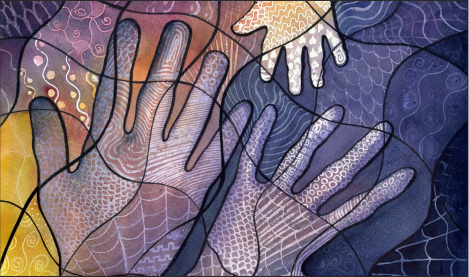Kahlil Gibran once wrote, “Your children are not your children…”
This single line of poetry was enough to shake the whole community of parents, and it still does. And in times to come, it will, too. But what followed this line were the lines that some found extremely outrageous and others, enlightening.
The poem is a classic note on how much ‘right’ parents have on their children and to what extent can they impose obligations and interfere in the life of someone they gave ‘life’ to.
Consider our previous generation or the eldest of our own generations. Many among them carry regrets to their graves. When dusk engulfs life, they are usually full of woes, not having done what they really had wanted to do. We hear them say, “If only I had not listened to them but listened to myself…” The irony stands in the fact that they too sometimes involve more in the life of others than they should.
Parents, without doubt, play a pivotal role in the development of their children. And it is also true that children observe their parents the most and learn a lot from them. Children and parents are mutually an integral part of each other’s lives and this is enhanced by factors such as communication, joint activities, home learning activities, picnics or other sorts of family time, etc.
Parental participation offers several advantages for both the parent and the child.
- Mutual Understanding
When parents make and spend some time with their children on a regular basis, they tend to relate more to how each set of them feel about various things. Parents and children, mutually, become aware of the likes and dislikes, principles, habits, etc of the other and such understanding, though it may seem insignificant at first glance, goes a long way.
- Improved Self-Esteem and Motivation
As said earlier, a child always looks up to its parents. When parents take time to appreciate and cheer the child on every little achievement, the child is motivated more to achieve better things. With such motivation, the child’s confidence as well as self-esteem is boosted, aiding in better development, overall.
- Development of ethics and values
The elder generation is usually more concerned about ethics, values, traditions and practices. With constant integration of such values in parenting, children become aware of the rich heritage that they are a part of and also tend to have reverence to the same.
However, all this depends upon to what extent the parental involvement is and to better understand the same, we need to first digest the types as well as pros and cons of various parenting styles,
Parenting styles are categorised into four based on the demandingness and responsiveness of the parents. Demandingness refers to the way that parents exercised their authority and Responsiveness refers to how the parents expressed their love. Among the four types, first comes disengaged parenting where parents are neither demanding nor responsive, the outcome turning out to be the worst with children having interpersonal and learning issues.
Second comes the permissive type where parents are less demanding and more responsive. They would give into their children any time causing them to be stubborn and manipulative. The third type is Authoritarian Parenting where the parents demand more and respond less. Here, we see that the children were given less love while brought up strictly with high social and academic expectations. The children of such parents lacked confidence, had low self-esteem and were found to be prone to anxiety, depression and interpersonal problems.
The fourth and the most favourable type of parenting is Authoritative Parenting. Here there is a balance between how much parents demand and how they express love. Under such balanced demand and expressiveness, children tend to show social well-being, motivation, improved self-esteem as well as good self-control.
It is thus proved that what our children become is dependent upon how we raise them. It is obvious from the above mentioned facts that neither total disengagement nor over involvement is beneficial to a child’s development. The choice lies in our hands. What would you do?
After all, in K Gibran’s words ‘Your Children Are Not Your Children’; they are here for a greater cause. And the cause lies in the dreams and passion that they want to pursue. Would you let them crumble under the weight of your demands? Or rather they soared high, with the wings you helped them build?
















